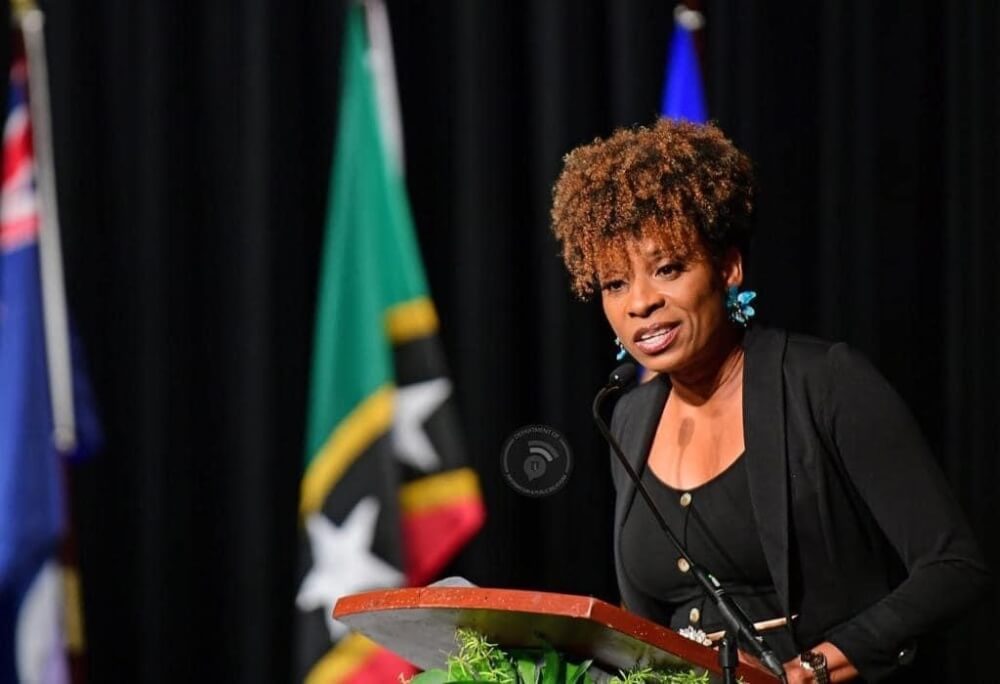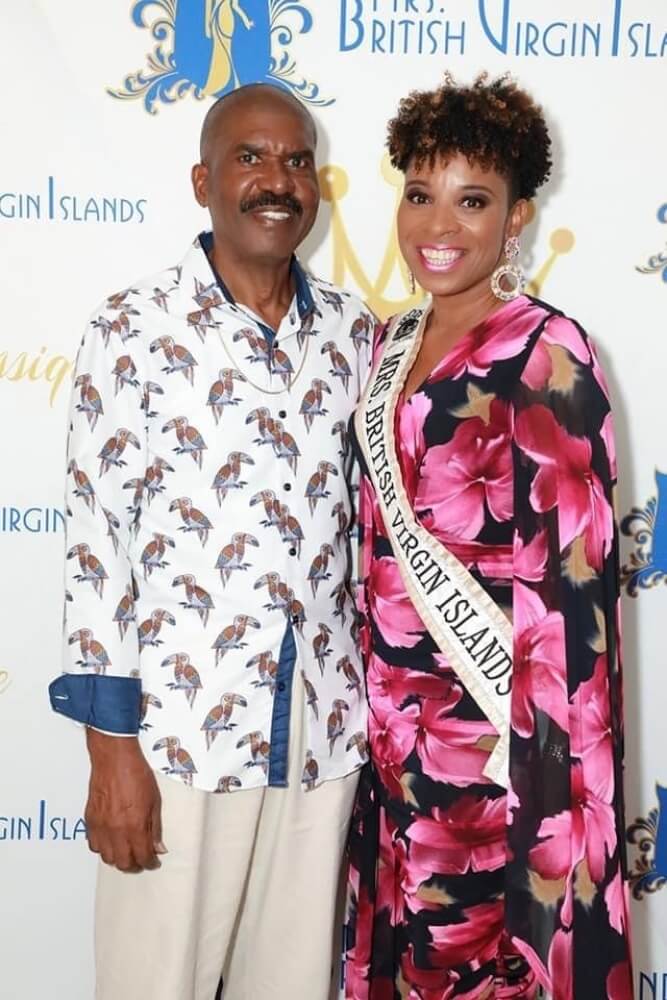Arliene T. Penn entered the Mrs. Globe pageant in 2023 not to win a title, but rather to spread a very important message on a very large stage. In the end, she did both.
Competing as Mrs. British Virgin Islands, Penn reached the semifinals of the international event. Far more important to her, however, was the “Voice of Women in Need” award she earned for the pageant’s best advocacy platform: her dedication to promoting cervical cancer awareness. A 19-year cervical cancer survivor — or, as she prefers it, “thriver” — Penn is committed to eliminating social stigma about the disease and stressing the importance for women to undergo regular cervical cancer screenings starting at age 25. Cervical cancer has a five-year survival rate of 91% if caught early, but this rate falls to 19% if it is not discovered until it has spread to a distant part of the body.
“The earlier women know, the quicker they can find ways to get to the care they need,” Penn says.
Penn’s advocacy is especially significant given the limited cancer treatment options in her hometown. Because there are no cancer centers in the British Virgin Islands (BVI), and few doctors with any oncology training, she traveled to the United States in 2004 for treatment in the Gynecologic Oncology Program at Dana-Farber Brigham Cancer Center.

Finding the experts
Penn’s own education began when she took advantage of a free Pap test offering in 2001. Just 25, she thought she was far too young to get the disease.
The test revealed “abnormal cells” that required further evaluation, but Penn was too busy working fulltime and raising two young sons — Shaamuoy (then 7) and Shaal’Que (then 5) — as a single parent. By the time she finally went for additional tests in 2004, and was told they indicated possible cervical cancer, she didn’t accept it.
“I went to five different doctors, because I didn’t want to believe the results,” Penn recalls. “The last was a gynecologist, and he told me, ‘I’m not even going to check you. You need to go get this treated now.’ He was worried it was cancer, and could be moving through my body, but there were no oncologists to tell me for sure.”
This warning finally moved Penn to action. She had an uncle in the United States, living outside Boston, so flew there in September 2004. A doctor at a neighborhood clinic confirmed her cervical cancer diagnosis, and quickly arranged for Penn’s admission at Dana-Farber. Dana-Farber’s Gynecologic Oncology Program is home to one of the world’s few clinical teams of pathologists and clinicians focused exclusively on diagnosing, evaluating, and managing gynecologic cancers, and Dana-Farber’s commitment to providing compassionate, patient-centered care helped put Penn at ease during the long months of separation from her sons.
“I can’t even put into words how welcoming Dana-Farber was,” she recalls. “It felt like home. My doctor, Elizabeth Garner, was wonderful, as was my whole team. They gave me assurance and a lot of hope.”
Penn had a hysterectomy at partnering Brigham and Women’s Hospital on Dec. 28, 2004, and because her cancer was diagnosed as Stage IB and confined to her cervix, she was able to keep her ovaries and required no chemotherapy or radiation. She stayed in Boston for three months of observation and recuperation, and after going back home traveled to Dana-Farber every three-to-six months — and eventually every year — for checkups. After 10 years, these trips were no longer needed.

Breaking her silence
Even though she has not been back since 2014, Penn credits her time at Dana-Farber as the jumping-off point for many of her life’s accomplishments. Imbued with confidence by her care team that she could do anything, she earned a bachelor’s degree in Journalism, master’s degrees in Leadership and Public Communication, and a PhD in Public Policy and Public Administration. She rose through the ranks professionally to become director of communications for the BVI government, and also raised her two sons and married her husband, William Penn.
One thing, however, she did not do. Other than a few people very close to her, Penn told nobody — not even her sons — about her cervical cancer. She explains that because the BVI is a close-knit community of approximately 30,000 people, she was worried she would wonder what others were thinking every time they looked at her.
“It is sad, but many people see a woman with cervical cancer as unwhole, or barren,” Penn says. “I was not ready to deal with that stigma. Talking about one’s reproductive health is not easy.”
Then, in 2021, Penn saw the latest World Health Organization statistics regarding cervical cancer: 600,000 women had been diagnosed with the disease in 2020, and 350,000 had died of it. Instantly, her feelings changed.
“I thought, why them, and not me?” Penn explains. “That was the moment I decided to tell my full story and help others.”
After revealing her cervical cancer survivorship in an online interview with her pastor, in a speech with the BVI Cancer Society, and then in her pageant competitions, Penn heard from women who said she gave them strength to do the same — and men thankful to finally feel comfortable sharing what their wives and mothers went through. The feedback was gratifying, and has continued.
So has Penn’s on-stage advocacy, which she promotes along with a message: Know>Fix>Live>WIN! Knowing many BVI women lack resources to seek care abroad as she did, Penn has used her pageant exposure and professional experiences to help. In addition to launching her own public awareness program, she has led fundraising campaigns to provide free diagnostic testing for cervical cancer as well as more territory-wide access to free Pap tests (also known as Pap smears) — the most common screening test to detect cervical cancer or precancerous cells (dysplasia).
“Arliene Penn is an inspiration and a reminder that we all need to work together to eradicate cervical cancer through universal screening and human papillomavirus (HPV) vaccination,” says Alexi Wright, MD, MPH, director of Gynecologic Oncology Outcomes Research at Dana-Farber. “My greatest hope is that we will eradicate this disease in our lifetime.”

In October 2023, the Government of the Virgin Islands hosted ministers of health from across the Eastern Caribbean States (ECS) for a meeting focused on prevention as a strategy to decrease chronic noncommunicable diseases. Serving as a keynote speaker, Penn implored that cervical cancer be prioritized as an urgent public health dilemma across the ECS region.
“Patients are living, breathing, thriving proof of the science, statistics, and data, and our voices need to be loud and clear to have a positive impact and influence on those suffering and dying in silence,” she told the gathering. “You can’t leave us out. You might be surprised how we want to help.”
